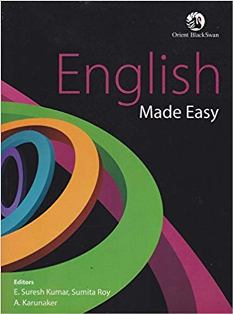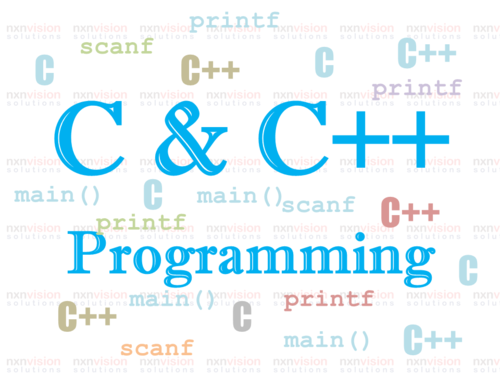The Course
The course addresses the English language needs of the students at the undergraduate level even as it acknowledges their critical thinking capabilities. The text exposes the students to a range of contexts where the language is used to meet a variety of real life communication needs, give and seek information, to express opinions, and to engage with practical, emotional, intellectual and creative aspects of language by integrating knowledge and skills. The exercises and the pre and post reading activities that supplement the main texts are designed to draw the students into texts, make them read and understand the insight and encourage them to think beyond the text. The book emphasizes on use rather than the usage, on how the English language is used rather than how it should be used. This book is one such tool which would help the students in honing English language and comprehension skills that would in turn help the students communicate effectively. Each chapter is organized in such a way that it creates a lot of involvement and encouragement to the learner.
Course Description
The syllabus has been designed to develop linguistic and communicative competence of the Under-graduate students.
In the classes the focus is on the skills of Reading Writing, Listening and Speaking divided under the four categories of Prose, Poetry, Vocabulary and Grammar For this, the teacher uses the text /selected paragraphs pedagogy. The teachers also ask comprehension questions to stimulate discussion and based on the discussions the students are made to write short paragraphs /essays, participate in group discussions.
Course Syllabus
UNIT -5
Short Fiction- ‘A Visit of Charity’ by Eudora Welty- Pronunciation: Plosive, Vocabulary:Smile & Metaphor, Grammar: Non Finite Verbs Spellings: Use of ie & ei Punctuation: Semi colon Conversation: Asking for information Reading passage: Hyderabad Writing : Note making Soft Skills: Time Management Value Orientation: Time & Tide wait For None
UNIT-6
Prose: Banares Aldous Huxley Pronunciation: Fricative Vocabulary: Oxymorone & Hyperbole Smile & Metaphor, Spelling: Words ending in- able or ible Grammar: Adjective Punctuation:Colon & em-dash Conversation: Requests Reading passage: Burrakatha Writing : Informal letters Soft Skills: Leadership Value Orientation: Pen is mightier than the sword.
UNIT-7
Poetry: Stanzas written in dejection, near Naples by PB Shelley Pronunciation: Affricates and nasal Vocabulary: Portmanteau words and loanwords Spelling: Words ending in- al, ance, ence, ic, ity & ive Grammar: Articles Punctuation: Hyphen Conversation: Conducting a meeting Reading passage: Flower boat- Sunkara Ramesh Writing : Writing formal letters Soft Skills: Stress management Value Orientation: Practice makes man perfect
UNIT - 8
Drama: Shakespear retold- Julius Ceaser (extract) ;Pronunciation: Approximant ;Vocabulary: Palindrome Spelling: Derived forms of Words; Grammar: Adverb ; Punctuation: Inverted coma Conversation: Interview skills; Reading passage: The handicrafts of Telangana ; Writing formal letters Soft Skills: Etiquette & Grooming; Value Orientation: Necessity is the mother of invention.
Course Outcomes:
The students will be able to:
· CO1: Use figures of speech in speaking and writing and learn how to indentify: Imagery, symbolism, style, and other figures of speech figures of speech in the poem/short fiction/prose/ drama.
· CO2: Know how to punctuate using colon, em-dash, semicolon, hyphen and inverted commas and comprehend the changes in meaning when these are used.
· CO3 :Use the different methods of note making in their study and during classroom instruction.
· CO4 :Manage their time in an organized manner and develop strategies to deal with stress.
· CO5: Be informed about travel writing, and the conflict between cultures, beliefs, customs, and superstitions in the essay-“Benares
· CO6 :Learn how to draft formal and informal letters.
· CO7 :Learn general etiquette and prepare for an interview and know about the power of speech (Rhetoric), oratory skills, delivery of speech and how it works in different contexts such as politics, religion and in some professions
· CO8 :Imbibe leadership qualities and learn how to conduct a meeting and inculcate values that help in the overall development of their personalities.

- Teacher: YAMINI G
- Teacher: Dr. MAITHRY SHINDE
Course Objective:
The purpose of this course is to introduce to students the field of programming using C and C++ language. The students will be able to enhance their analysing and problem solving skills and use the same for writing programs in C and C++.
Course outcomes:
CO1: Understanding a functional hierarchical code organization and the ability to define and manage data based on problem subject domain.
CO2: The student will be able to solve problems using C Programming language and C++ programming language.
CO3: Ability to work with textual information, characters and strings.
CO 4: The student will be able to design C++ classes for code reuse
CO5: Will be able to analyze and execute the most efficient and diversified technique for a given task.
CO6: The ability of random access to files or records and other file management functions in C.
CO7: Implement copy constructors and class member functions and understand the concept of data abstraction and encapsulation.
C08: The student has the ability to handle possible errors during program execution

- Teacher: JERUSHA SHALINI VASKA

- Teacher: BIKSHAPATHI MADA
